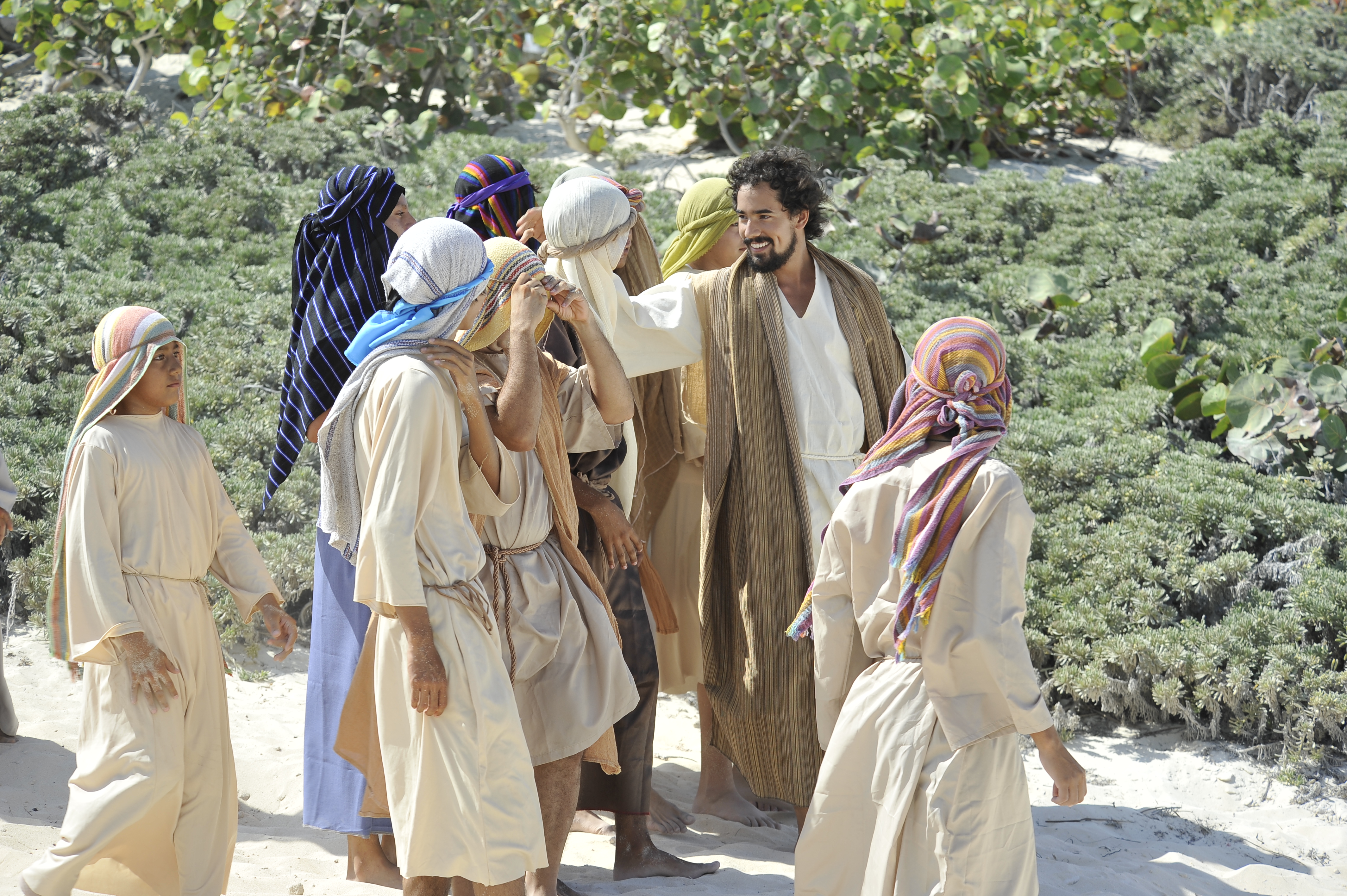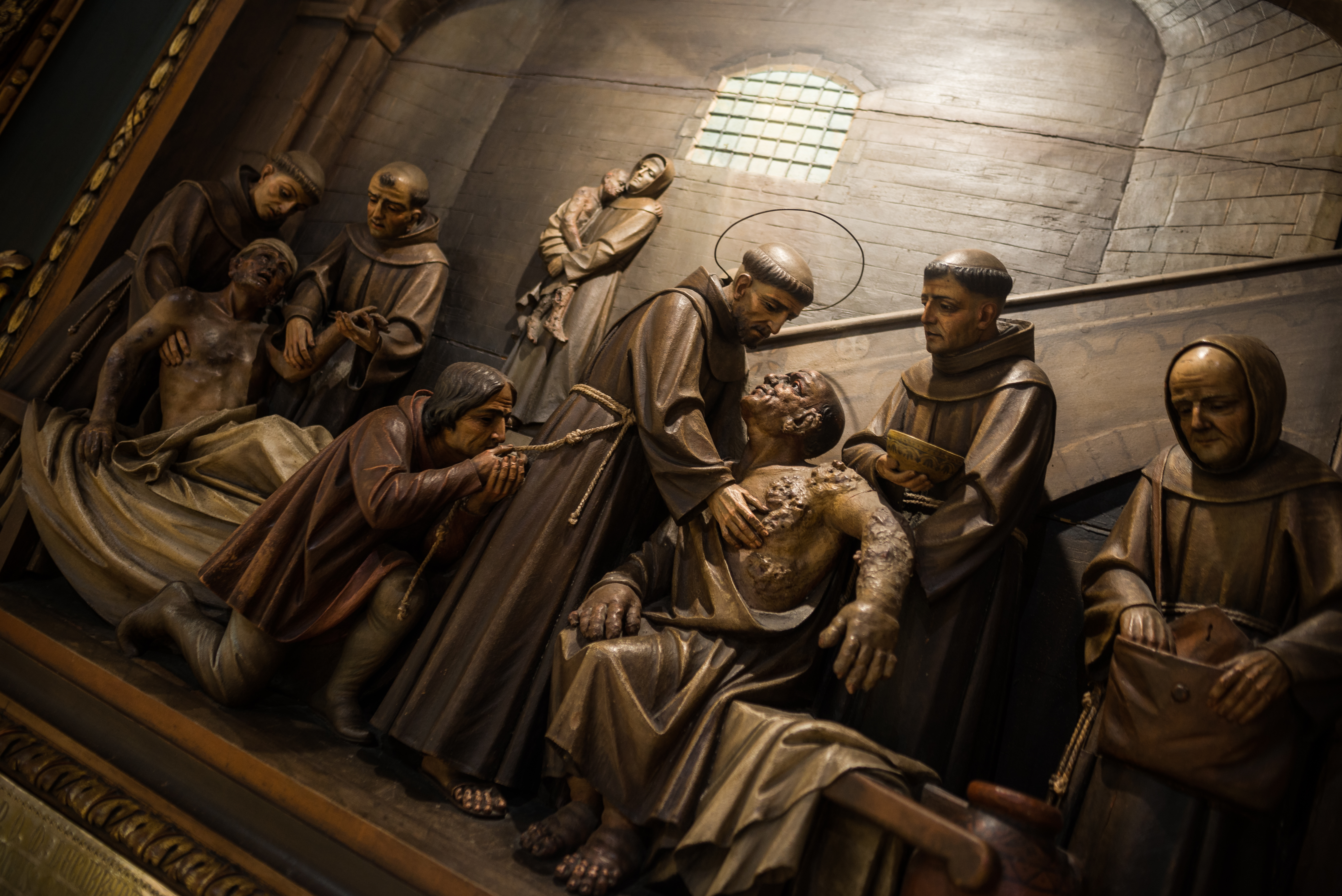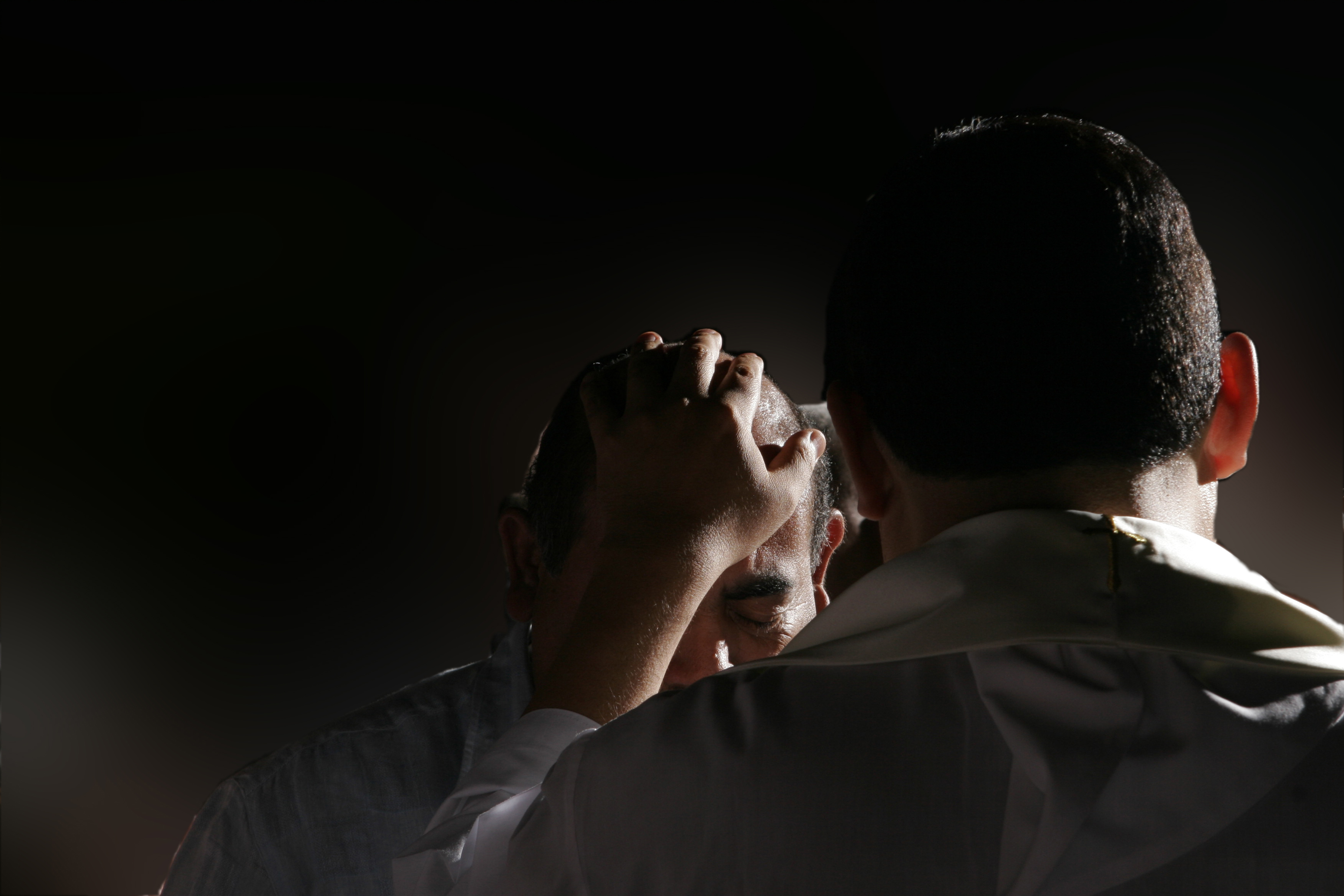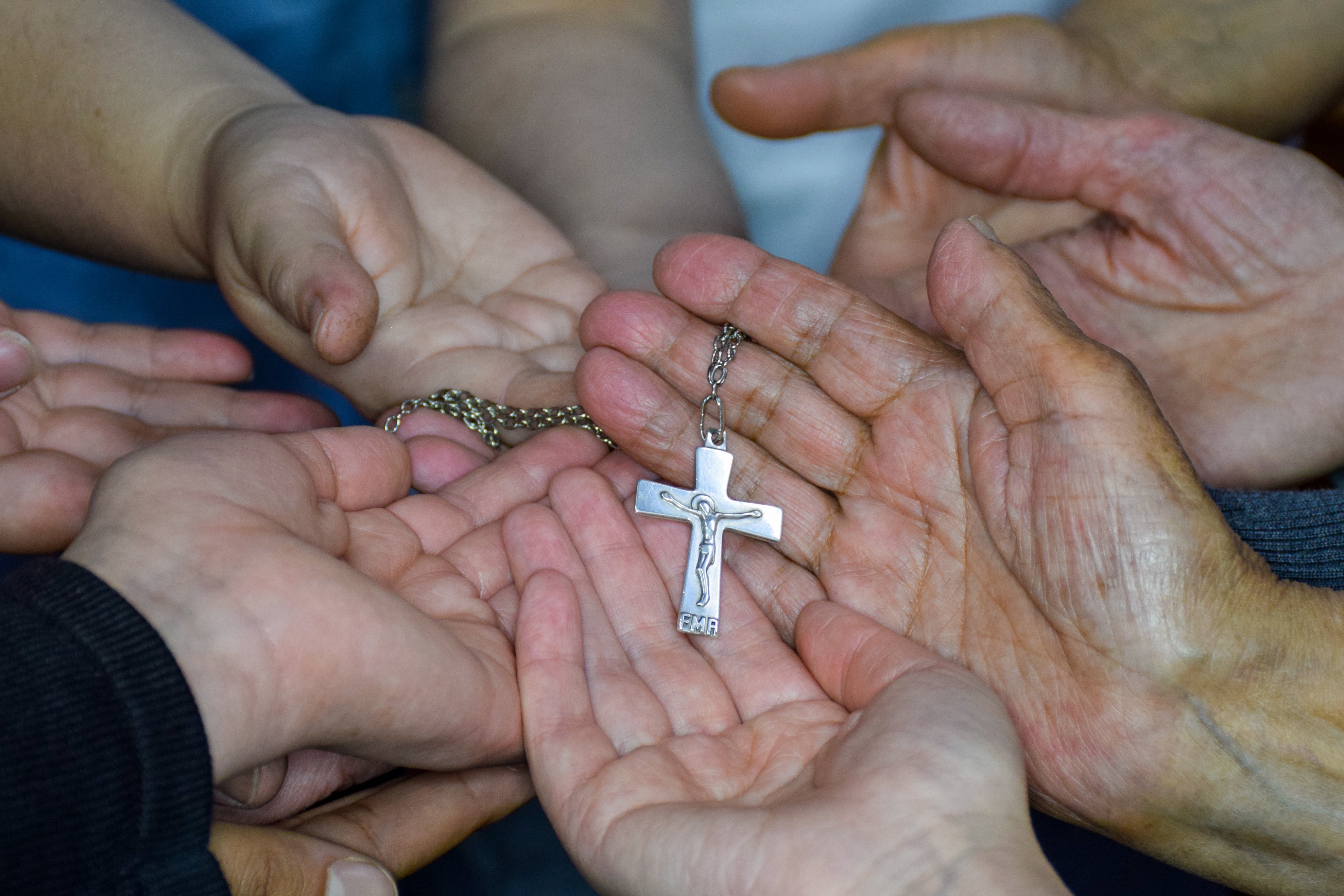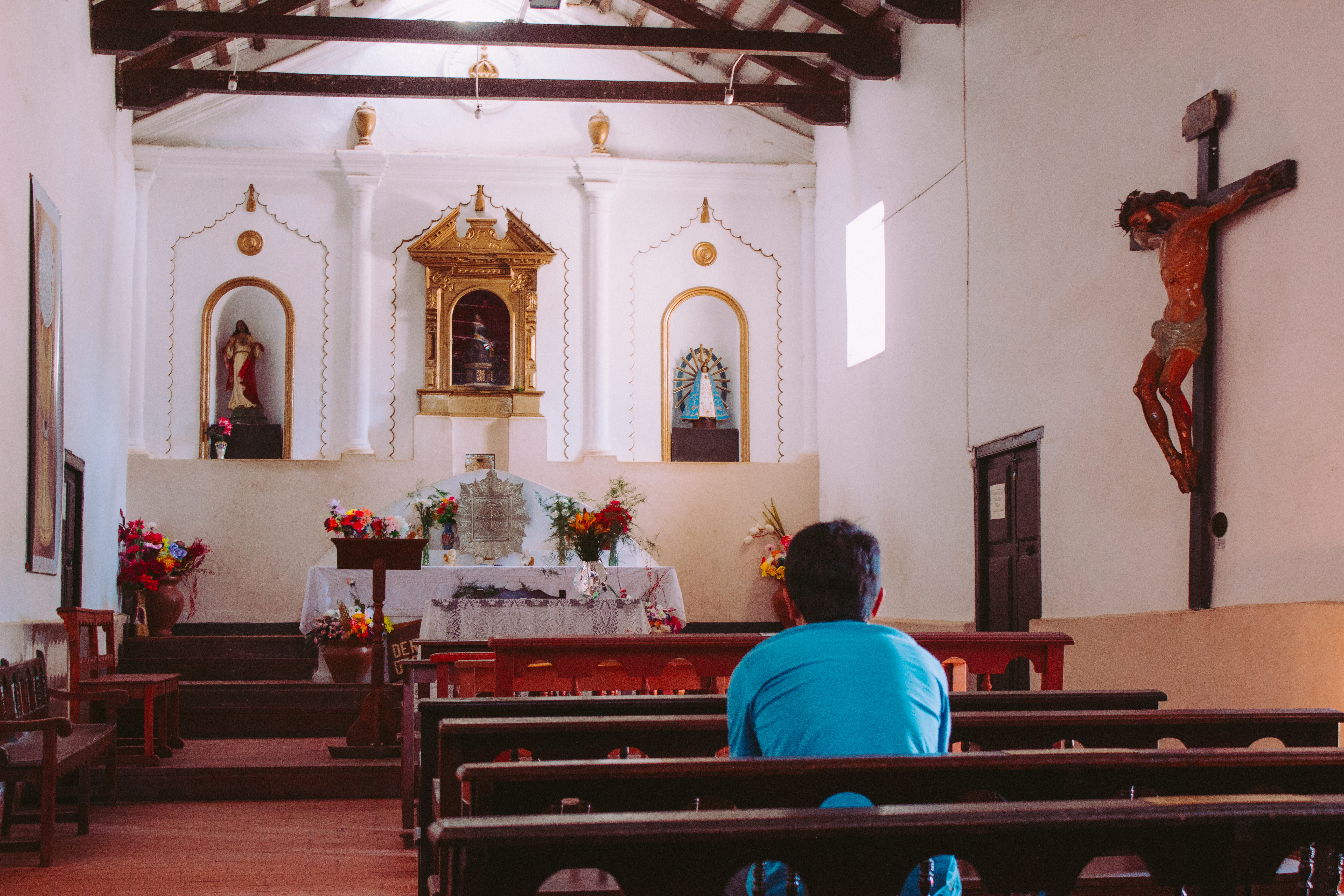In today’s Gospel reading, Jesus gives us the Beatitudes. These are words we all know well. But given our political climate today and the persecution that many have faced because of their pro-life beliefs, there are a couple lines worth focusing on—lines that teach us to hope.
Jesus tells the crowd: “Blessed are they who are persecuted for the sake of righteousness, for theirs is the kingdom of heaven. Blessed are you when they insult you and persecute you and utter every kind of evil against you falsely because of me. Rejoice and be glad, for your reward will be great in heaven.”
Having the ability to stand up for our faith and what the Church teaches is called moral courage. And moral courage is something we desperately need today. We are not born with moral courage. We must learn it; then we must practice it in all that we do.
It takes a lot of courage to speak out when others denigrate our faith. It takes courage to immerse ourselves in Church teaching and live it openly and outwardly so that others see. This is why we must constantly look to others who have lived out their courage. There are so many who either died for their faith or who devoted their lives to teaching others. We would be counting all day if we could, but let’s just highlight a few. Saints Felicity and Perpetua died in an amphitheater when they wouldn’t renounce their faith. St. Stephen was stoned to death. St. Peter was crucified upside down. St. Lawrence was grilled to death. St. Dymphna was beheaded… Their stories serve as beautiful examples when we fear speaking up for our faith.
Many people say they feel hopeless and overwhelmed by the evils of the secular world today. Our society has no regard for human beings. Women scream for abortion “rights.” Assisted suicide laws are becoming more prevalent. Murders and violent crimes are on the rise. Road rage incidents are increasing. Smash and grab incidents are forcing stores to close. Hatred fills the news. Politicians claiming to be Catholic blatantly repudiate Church teaching. There’s so much bad news out there.
But we cannot allow that bad news to keep us from speaking out. We must protect Christ and the Church. How do we do that? We practice every day. We fill our lives with examples of holy men and women. We join groups at church. We read books that help us learn. We vote according to our pro-life beliefs. We then model our lives after these holy people by acting on that faith, always putting God first in our lives.
These are the things that will make a difference. When we do these things, our reward will indeed be great in heaven.
En la lectura del Evangelio de hoy, Jesús nos da las Bienaventuranzas. Estas son palabras que todos conocemos bien. Pero dado nuestro clima político actual y la persecución que muchos han enfrentado debido a sus creencias pro-vida, hay un par de líneas en las que vale la pena enfocarse, líneas que nos enseñan a tener esperanza.
Jesús le dice a la multitud: “Dichosos los perseguidos por causa de la justicia, porque de ellos es el Reino de los cielos. Dichosos serán ustedes, cuando los injurien, los persigan y digan cosas falsas de ustedes por causa mía. Alégrense y salten de contento, porque su premio será grande en los cielos”.
Tener la capacidad de defender nuestra fe y lo que enseña la Iglesia se llama valentía moral, y es algo que necesitamos desesperadamente hoy. No nacemos con valentía moral. Debemos aprenderlo y luego practicarlo en todo lo que hacemos.
Se necesita mucha valentía para hablar cuando otros denigran nuestra fe. Se necesita valentía para sumergirnos en la enseñanza de la Iglesia y vivirla abierta y exteriormente para que otros la vean. Es por eso que debemos mirar constantemente a otros que han vivido con valentía. Hay tantos que murieron por su fe o que dedicaron sus vidas a enseñar a otros. Estaríamos contando todo el día si pudiéramos, pero destaquemos solo algunos. Santas Felicidad y Perpetua murieron en un anfiteatro cuando no quisieron renunciar a su fe. San Esteban fue apedreado hasta la muerte. San Pedro fue crucificado boca abajo. St. Lorenzo fue asado a la parrilla hasta la muerte. St. Dymphna fue decapitada… Sus historias sirven como hermosos ejemplos cuando tememos que defender nuestra fe.
Muchas personas dicen que se sienten desesperanzadas y abrumadas por los males del mundo de hoy. Nuestra sociedad no tiene respeto por los seres humanos. Las mujeres gritan por los “derechos” al aborto. Las leyes de suicidio asistido son cada vez más frecuentes. Los asesinatos y los delitos violentos van en aumento. Los incidentes de ira al volante están aumentando. Los incidentes de aplastamiento y agarre están obligando a las tiendas a cerrar. El odio llena las noticias. Los políticos que se dicen católicos repudian descaradamente las enseñanzas de la Iglesia. Hay tantas malas noticias.
Pero no podemos permitir que las malas noticias nos impidan hablar. Debemos proteger a Cristo y a la Iglesia. ¿Como hacemos eso? Practicamos todos los días. Llenamos nuestras vidas con ejemplos de hombres y mujeres santos. Nos unimos a grupos en la iglesia. Leemos libros que nos ayudan a aprender. Votamos de acuerdo con nuestras creencias pro-vida. Luego modelamos nuestras vidas según estas personas santas al actuar en esa fe, siempre poniendo a Dios primero en nuestras vidas.
Estas son las cosas que instan cambios. Cuando hagamos estas cosas, nuestra recompensa ciertamente será grande en el cielo.
 Susan Ciancio has a BA in psychology and a BA in sociology from the University of Notre Dame, with an MA in liberal studies from Indiana University. For the past 19 years, she has worked as a professional editor and writer, editing both fiction and nonfiction books, magazine articles, blogs, educational lessons, professional materials and website content. Thirteen of those years have been in the pro-life sector. Currently Susan freelances and writes weekly for HLI, edits for American Life League, and is the executive editor of Celebrate Life Magazine. She also serves as executive editor for the Culture of Life Studies Program—an educational nonprofit program for K-12 students. You can reach her at slochner0.wixsite.com/website.
Susan Ciancio has a BA in psychology and a BA in sociology from the University of Notre Dame, with an MA in liberal studies from Indiana University. For the past 19 years, she has worked as a professional editor and writer, editing both fiction and nonfiction books, magazine articles, blogs, educational lessons, professional materials and website content. Thirteen of those years have been in the pro-life sector. Currently Susan freelances and writes weekly for HLI, edits for American Life League, and is the executive editor of Celebrate Life Magazine. She also serves as executive editor for the Culture of Life Studies Program—an educational nonprofit program for K-12 students. You can reach her at slochner0.wixsite.com/website.
Feature Image Credit: Fernando Pérez Lara, cathopic.com/photo/9513-jesus-y-sus-discipulos
